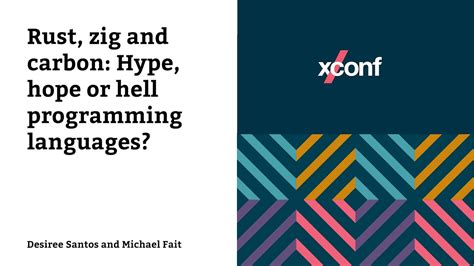The debate over which programming language to adopt is a common one among developers, particularly when the contenders offer distinct philosophies and toolsets. Recently, discussions have intensified around Rust and Zig, two languages that, while sharing some surface-level similarities with older languages like C and C++, ultimately serve different purposes and solve different problems. To appreciate the nuances of this debate, it’s crucial to delve deeper into the unique offerings of each language and the contexts in which they thrive.
Rust has garnered a dedicated following, particularly in the systems programming community. It’s frequently described as a modern, safer alternative to C++ because of its emphasis on memory safety and concurrency. Rust’s borrow checker is often cited as a revolutionary feature that ensures memory safety without the overhead of a garbage collector. This makes it a prime candidate for performance-critical applications such as operating systems, web servers, and game engines. The borrow checker enforces a strict and sometimes challenging discipline that can be initially frustrating for new learners but ultimately cultivates better coding practices.
Zig, on the other hand, is often positioned as a better C. It’s designed around simplicity and explicitness, aiming to evolve the foundations laid by C without being weighed down by its historical baggage. Zig boasts features like comptime, which brings compile-time code execution, offering a flexible way to generate and optimize code. Unlike Rust, Zig doesn’t have a borrow checker or built-in guarantees for memory safety, instead offering tools to aid in catching errors early during development. This makes Zig a less restrictive but potentially riskier choice for developers who need that extra control and who are adept at manual memory management.
The conversation doesn’t stop at Rust and Zig. Several comments in the discussion reflect on Go, another language often brought up in comparisons despite its different focus. Unlike Rust and Zig, which are natively close to the metal, Go includes a garbage collector, which can disqualify it for low-latency applications but makes it incredibly developer-friendly. Go’s design emphasizes simplicity and ease of concurrency through goroutines, which makes the language particularly suited for network servers and cloud-native applications. Critics often argue that Go’s runtime characteristics make it unsuitable for traditional systems programming, but proponents appreciate its straightforward syntax and efficient compilation.
A notable example of Go’s controversial design decisions is its handling of nillable values, which some argue is a relic from older languages that invites null pointer exceptions—a common source of runtime errors. Despite this, Go remains a popular choice for a certain class of applications that benefit from its ease of use and speed of development.
In exploring the breadth of these languages, it becomes evident that each one addresses specific pain points in its unique way. Rust’s unbeatable compile-time memory safety comes at the cost of a steeper learning curve and more verbose syntax. Zig offers a more hands-off approach, granting developers the flexibility to manage memory but also the burden of avoiding classic pitfalls like null pointer dereferencing and memory leaks. Go bridges a different gap by offering rapid development capabilities and ease of concurrency but sacrifices lower-level control and deterministic performance.
This richness of choice can be both a blessing and a curse. As one commenter astutely noted, trying to find a one-size-fits-all solution in programming languages often results in mediocrity. The idea of toggling memory safety on and off, as mused by some, would require a fundamentally different language design and might dilute the strengths that each language offers. Another perspective highlighted the importance of specializing deeply in one language to truly master its intricacies before exploring others. This approach not only enhances one’s expertise in that language but also provides a solid foundation for learning additional languages in the future.
In conclusion, the choice between Rust, Zig, and other languages like Go or C++ is not one of absolute superiority but of aligning the language’s strengths and weaknesses with the specific needs of your project. Rust excels in safety and concurrency at compile time. Zig offers a powerful, straightforward syntax with flexible compile-time capabilities, but it doesn’t shield you from memory safety issues the way Rust does. Go provides an excellent middle ground for rapid development and ease of concurrency at the expense of low-level control. Each of these languages contributes to a richer, more versatile programming ecosystem where developers can pick the best tool for their needs.


Leave a Reply